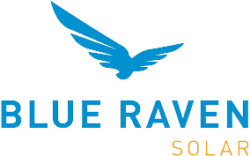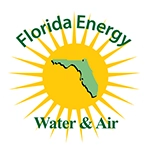Benefits of Solar Energy
Solar energy provides multiple benefits. Here are some highlights.
- Reduced carbon footprint: The sun is a highly abundant clean energy source, meaning you can lower or beat your home's dependence on non-renewable sources.
- Lowered energy bills: Solar panels let you generate your own energy to power your home, decreasing your monthly electricity costs. Going off-grid can eliminate your bills completely. Plus, a significant number of states have adopted net metering, which permit you to earn money by selling your unused energy back to the grid.
- Better energy independence: Solar panel systems can keep your home functioning through blackouts and emergencies. You can use your solar energy anytime with optional battery storage.
What Solar Incentives Are Available to Melbourne Homeowners?
Florida homeowners who decide on solar could qualify for special financing, rebates, reimbursements and tax credits. Here are just a few of the region's incentive programs.
Incentive Type: Sales Tax Incentive
Incentive Amount:
All
Incentive Type: Property Tax Incentive
Incentive Amount:
Residential: 100% of the added value
Non-Residential: 80% of the added value
Incentive Type: PACE Financing
Website: floridapace.govIncentive Amount:
Determined locally
Incentive Type: Loan Program
Website: lakelandelectric.comIncentive Amount:
$5,000
Incentive Type: Personal Tax Credit
Website: ecowatch.comIncentive Amount:
30% federal tax credit for systems placed in service after 12/31/2021 and before 01/01/2033. Good for: solar water heat, solar photovoltaics, biomass, geothermal heat pumps, wind (small), fuel cells using renewable fuels.
How To Choose the Best Solar Company in Melbourne
The purchase price and effectiveness of solar panels often rely on the provider that mounted them. Consider all of these factors in your company search.
Licensing and Training
Once an electrical professional in Florida has four years of field experience, including one year as an apprentice, they can take two exams to earn a CV license with the Florida Construction Industry Licensing Board. Florida also allows electrical contractors to install solar panels, but they may need to subcontract some tasks to a licensed roofer. You should also visit a company's website to learn about its private certifications. Two of the most recognized are the Solar Heating Installer and PV Installation Professional certificates, granted by the North American Board of Certified Energy Practitioners (NABCEP). Some companies don't publish this information online, so you should also ask your estimator about them.
Cost of Solar Panels in Melbourne
Your solar modules' style will impact how much power you can produce. Monocrystalline panels are among the highest quality and cost the most but perform the best. Polycrystalline panels generate less, but they're a great traditional option for low budgets. Thin-film panels have a low cost and are excellent for non-traditional roofs, but aren't recommended for large home installations.
You can also add electric vehicle (EV) chargers and battery backup systems. These will increase your total installation cost, but they can improve your solar system's efficiency. Not every solar provider includes these additional features, so look for a provider that installs them if it's crucial for you.
You can plan to spend about $16,050 on average for a five-kilowatt solar energy system in Melbourne. Use the table in this section to get an idea of how much Melbourne solar companies might quote for your specific solar system's price.
| Solar Panel Cost | Average Cost |
|---|---|
| Solar Monocrystalline | $1,065 |
| Solar Polycrystalline | $831 |
| Thin-Film | $486 |
| Solar Battery | $682 |
| Solar Home EV Charger | $2,557 |
Financing Solar Energy in Melbourne
There are many ways to pay for a solar energy system, and the right one will minimize your overhead. A few of the most common options include power purchase agreements (PPAs), cash payments, loans, and leases. Though it involves a large up-front payment, cash is the most cost-effective choice because it qualifies you for solar incentives and doesn't accrue interest. Solar loans are the runner-up option. As with a home or auto loan, you'll pay a monthly rate towards system ownership, including interest. You can still apply for cost-saving solar incentives, and depending on your lender, you could put as little as $0 down. Solar leases involve paying a set monthly rate to use rooftop panels. A PPA (Power Purchase Agreement) lets you pay a monthly rate determined by the energy you use, like an electric bill. We typically don’t recommend these two choices because you won't own the panels and cannot use solar incentives. Look for companies that offer multiple payment plans to find the right fit for your budget.
The table below lists the average payback periods for different capacities of solar systems in Melbourne.
You can claim a 26% federal solar tax credit from the IRS for new residential solar systems purchased before 2032. Additionally, local governments and utilities may have their own rebates and financing plans that could reduce your total cost even more.
| Solar System Capacity | Estimated Payback period |
|---|---|
| 1 kW | 1.7 years |
| 2 kW | 3.5 years |
| 5 kW | 8.6 years |
| 10 kW | 17.3 years |
Ready to Get a Quote on Your Solar Project?
Please enter a valid 5-digit zip code!
Frequently Asked Questions About Solar in Melbourne
How much energy and money could I save per year by switching to solar?
How prevalent is solar energy in Melbourne?
Will a solar PV system boost my Melbourne home value?
What if I live in a rainy or dark
What can I do to estimate my home's solar potential?
Is installing solar panels a quick job?
How does "net metering" work, and do I need to participate?
Some states or utilities require you to participate in net metering when installing your solar system, while others give you a choice. Either way, once you participate, you'll get a bill credit or check for your excess generation at a wholesale or retail rate.
What's the difference between a PPA and traditional financing?
In contrast, solar loans can come from local banks, the government, specialty lenders and installer. You'll need to pass a credit check to qualify for most of them. While the upfront costs are higher, and you'll be responsible for upkeep, you'll also have full ownership rights and can apply for many more incentives.
To share feedback or ask a question about this article, send a note to our Reviews Team at reviewsteam@thisoldhousereviews.com.



















